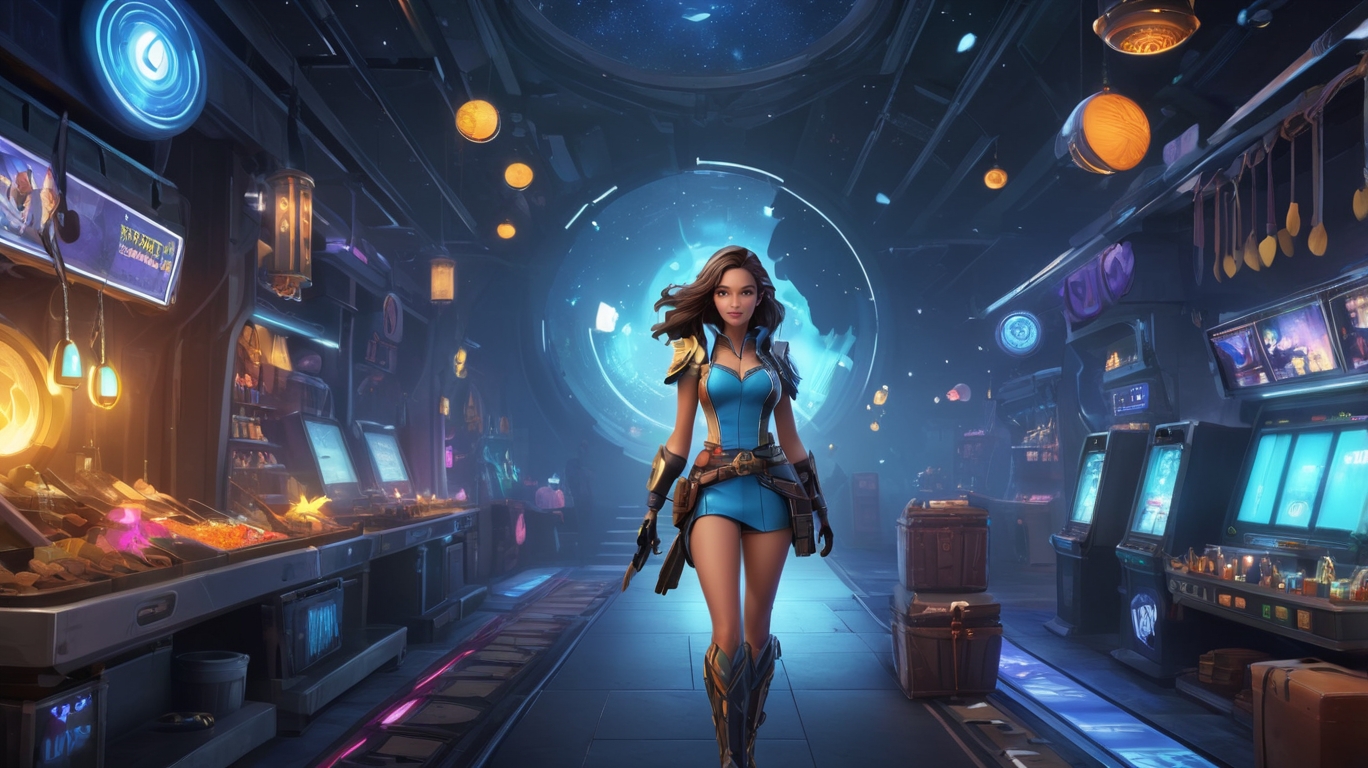
Online gaming is about creating ecosystems in 2025, not just having fun. One of the most exciting trends in the industry today is the transformation of core game mechanics into revenue-generating systems. What was once a simple feature, like trading, crafting, or customization, can now become a full-fledged economy inside the game, and sometimes outside of it.
At Melior Games, we’ve been working on multiplayer games where mechanics aren’t just gameplay elements, but markets. Here’s how this transformation is happening and what it means for developers, players, and studios.
🎨 1. Customizing cosmetics as currency
It all started with skins. What began as a light-hearted method of character customisation in shooters and MOBAs has developed into a billion-dollar industry. Today, cosmetics go far beyond simple repaints — they’re brand collaborations (think Fortnite x Nike), status symbols, and markers of social identity.
In today’s online games, players spend real money to express themselves, gain prestige, or support creators. When cosmetics are combined with a seasonal advancement system (like battle passes), they also change from a visual component to a reliable source of cash.
Mechanics → Market: Character Skins → Time-limited cosmetic stores and a skin market for creators
🛠️ 2. Crafting and Item Trading Economy
Crafting systems have long been an integral part of RPGs and survival games, but today they are often the backbone of the game economy. Games like Escape from Tarkov, Albion Online, and New World show how player-driven economies can be shaped by resource scarcity, time constraints, and crafting skills.
Resource gathering and player-to-player trading are basic mechanisms that form the basis of real-world trade, black markets, and auction houses.
Mechanics → Market: Item Crafting → Game Economy, Premium Crafting Boosts, Trade Taxes
🃏 3. Gacha and Loot-Based Progression
Whether you like it or not, the gacha mechanic—randomized reward systems commonly seen in mobile role-playing games—has made uncertainty into revenue. Whether it’s pulling characters, gear, or cards, the thrill of chance keeps players coming back.
To increase transparency and fairness, astute developers are shifting from pure randomisation to pseudo-random or pseudo-physical systems. Done right, this mechanic becomes less about gambling and more about emotional investment.
Mechanic → Market: Randomized pulls → Banner systems, limited-time events, in-game currency packs
🏗️ 4. User-Generated Content (UGC)
Games like Roblox, Core, Fortnite Creative, and Dreams have shown that players want to be creators. Your community becomes co-creators and your game becomes a platform when you allow people to contribute levels, skins, or complete game types.
The monetisation of modern UGC systems is often integrated: studios can earn a tiny portion, gamers can tip or subscribe, and creators can sell their work. This mechanic turns passive consumers into active entrepreneurs.
Mechanics → Market: Level Editor → Creator Economy, UGC Showcases, Tipping Systems
🧩 5. Progression Systems and Battle Passes
Previously, progression was all about experience points (XP) and leveling up. Today, the key factors are content pacing, user retention, and seasonal monetization. Battle passes are now the primary way to incentivize continued participation and earn money from ongoing engagement.
This system is well-liked because of its multi-level monetisation (free and premium tiers, XP bonuses, and time-limited incentives) and clear value proposition (pay once, unlock as you play). One of the most profitable game elements today is progression.
Mechanics → Market: XP leveling up → Seasonal battle passes, booster unlocks, exclusive reward tracks
💡 The Future: Mechanics as Monetized Systems
As developers, we no longer just design gameplay—we design player economies. The secret is striking a balance between justice in monetisation and engagement. When it feels like an option rather than a trap, players will spend money. This means that monetized mechanics should offer:
- Real value
- Player agency
- Ethical transparency
- Gameplay integrity
🤝 Build Smart Systems with Melior Games
At Melior Games, we specialize in designing online experiences that integrate gameplay with sustainable, ethical monetization systems. We’ll assist you in creating a competitive PvP shooter with high-end cosmetics, a crafting-based MMORPG, and a sandbox focused on user-generated content. We’ll work together to transform your mechanics into vibrant marketplaces.
Let’s create games that are not only fun to play but also smart to maintain.
Partner with Melior Games and build the future of online gaming today.




